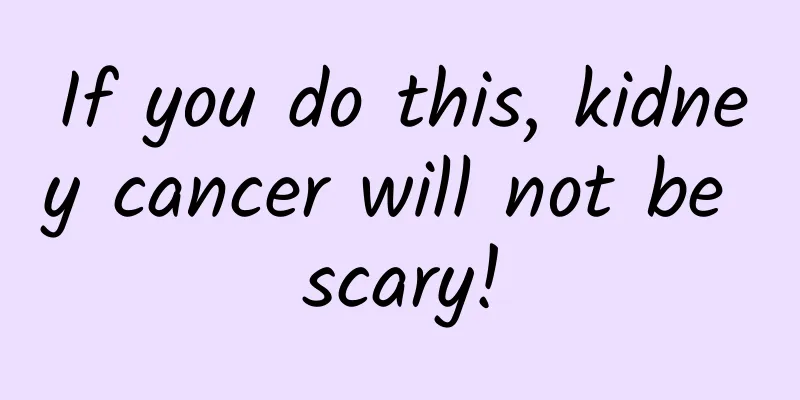Is your headache worse after taking painkillers? If you have these symptoms, you must go to the hospital!

|
Review expert: Peng Guoqiu, deputy chief physician of the Fourth Medical Center of the General Hospital of the Chinese People's Liberation Army We all have headaches in our lives. Being blown by cold wind, not getting enough rest, or catching a cold can all cause headaches. When a headache strikes, most people either endure it and it will go away, or take painkillers to relieve it. Taking painkillers occasionally may not have much effect, but can effectively relieve headaches. However, if you take painkillers excessively for a long time, it will not only fail to relieve the headache, but will also make it worse! Headache Headache in a broad sense refers to all pains in the head, while headache in a narrow sense refers to pain limited to the upper part of the head, including pain above the line connecting the brow arch, the upper edge of the auricle, and the external occipital protuberance. Headache is one of the most common symptoms of the nervous system. Headache – Medication Overdose Headache Medically, headaches are classified according to the different causes that cause them: 1. Primary headaches: migraine, tension headache and cluster headache; 2. Secondary headache: headache caused by diseases such as meningitis, brain tumor, cerebral ischemia or cerebral hemorrhage, fever, and headache caused by drug overuse. Headaches can be divided into two categories based on their onset characteristics: Chronic headache: more than 15 headache days per month. Today, we are talking about "medication overdose headache" Aunt Jia has been suffering from headaches for more than 10 years. In recent years, her headaches have become more and more severe. Because the pain is unbearable, Aunt Jia can only rely on painkillers every day to relieve it. After taking it for a long time, she began to feel that painkillers were useless. If she didn't take it, she would still feel pain. She could only increase the dosage and keep taking it. In order to deal with the headaches that may occur at any time, she even put painkillers in her pocket when she went out. Aunt Jia also knew that she couldn't take painkillers like this anymore, but the pain when the headache came made her dare not stop taking the medicine... Later, Aunt Jia went to a headache clinic. After an examination, the doctor said that the instructions for the painkillers she took stated that she could only take them three times a day. She had already taken an overdose, and the drugs contained caffeine. If such drugs were taken frequently and for a long time, they would cause headaches after drug overdose. Excessive use of painkillers may also cause damage to other parts of the body, such as the gastrointestinal tract, kidneys, and cardiovascular system. Medication overdose headache Aunt Jia suffers from medication overuse headache, which refers to frequent headaches after long-term overuse of analgesics. MOH is a global health problem that causes severe disability and impaired quality of life for patients. Some patients have poor treatment effects and high relapse rates, which brings huge burdens to individuals and society. In 2013, the MCIHS defined MOH as a condition in which a patient has primary headache and regularly takes one or more symptomatic analgesic drugs for more than 10 or 15 days per month (depending on the type of drug used) for more than 3 consecutive months. For simple analgesics, the number of days per month is greater than or equal to 15 days. Do not take any medication on your own, seek medical attention immediately if you have these symptoms! Taking painkillers on your own can easily mask the symptoms of the disease itself. In addition to mood swings and lack of sleep, headaches can also be caused by eye diseases, otitis media, sinusitis, acute infections, vitamin A poisoning, infectious diseases, and brain diseases. If you have frequent headaches but only take painkillers, it is easy to delay the diagnosis and treatment of the disease. These 3 types of headaches should be treated promptly: 1. If you often have unilateral or all-over headaches in the early morning or at night, and the headaches continue to worsen, this indicates that the headaches may be caused by brain diseases, and there is even a risk of brain tumors. 2. If you have a sudden severe headache, you must seek medical attention immediately, especially if you have underlying diseases such as hypertension and diabetes. Headache is accompanied by other symptoms, such as fever, blurred vision, projectile vomiting, or confusion. |
<<: Raw peanuts VS cooked peanuts, which one is more nutritious?
>>: @Pregnant Mom: Extremely unfriendly! Beware of Toxoplasma gondii in "cats"
Recommend
What causes uterine myositis?
Myometritis is a serious disease for women. When ...
The harm of pregnant women picking their belly buttons
The belly button is the connection between many o...
Can I apply facial mask during confinement?
Confinement is a state of recuperation after chil...
Pregnant woman in bed with unbearable labor pains
When approaching delivery, pregnant women are pro...
Postoperative complications of breast ductal adenocarcinoma
There are many mammary ducts in the breast, which...
Can I get pregnant normally with a small uterus?
Pregnancy is the main concern of every woman afte...
I have a little menstrual period every day
Small menstrual volume means that the amount of b...
Illustrations | "Basic Code of Conduct for Citizens to Prevent Epidemics" New Coronavirus Pneumonia Prevention and Control Plan (9th Edition)
Editor: Wang Shanshan and Yang Minghao...
How long after hysteroscopy can I have sex?
Laparoscopic hysteroscopy is a new, minimally inv...
Is less body hair a blessing or a curse for women?
Question 1: Are some women depressed because they...
A woman dreams of dyeing her hair
The scenes in dreams are always varied and usuall...
Can canned sardines be eaten frequently? What nutrients does canned sardines contain?
Our bodies need enough minerals. Sardines are als...
What does hysteroscopy cause?
The gestation process of a life is completed in t...
Postpartum vaginal tightening medicine
After giving birth, women will more or less exper...
My stomach hurts when I press it
If your lower abdomen hurts when you press it, yo...









